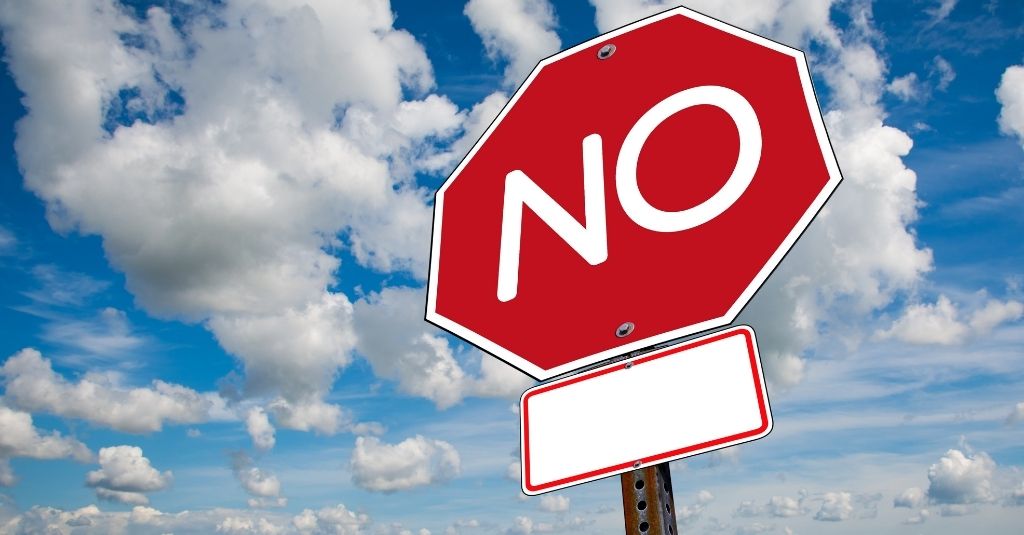Why are boundaries important?
What are healthy boundaries?
Why our relationship boundaries or any boundaries important?
These are important questions we need to ask ourselves. Let me share a story about life with no boundaries. No boundaries with family, friends, or in the workplace. People may have different words for setting up boundaries such as a privacy wall, save space, firewall, etc. Everyone has their own communication style and it can change as life and events happen. Women and men communicate may communicate differently with their friends than with their intimate partners. Boundaries could be different or nonexistent.
From the article The Power of Boundaries in Psychology Today:
Each of us tries to erect a boundary around the parts of ourself we want to keep private, or at least shielded from those with whom we’re not intimate. Some people are more vigilant about raising those firewalls than others, however, which can lead to discomfort, if not open conflict, because it’s harder to keep others’ revelations out than it is to keep our own within. “We think about boundaries as a self-oriented concept: This is my boundary. But it’s not just a matter of what you’re willing or not willing to say, it’s also what you’re willing to let in,” says Mariana Bockarova, a psychology researcher at the University of Toronto.
In healthy relationships, romantic or otherwise, Bockarova says, we attune ourselves to others’ boundaries by making gradual “bids of trust.” For example, on a first date you might confess that you’d had a tough day at work because your boss was snippy to you. “If the other person doesn’t say anything back, chances are you wouldn’t further extend,” she says. “Bids of trust are lessened when there’s no reciprocity. You’re suddenly not safe with this person.”
Danielle Bayard Jackson, for example, has close female friends, but would sometimes feel uncomfortable when talk turned to their sex lives. “They might gab about it or make a joke. They’ll divulge and ask questions about me and my husband—not to be nosy, but because we’ve had a glass of wine,” she says. “So I’ve learned to just say, ‘Girl, I’ll talk to you about a lot of things, but for some reason I protect that. That’s just my thing.’”
By making her need for privacy “her thing,” Jackson keeps the conversation from devolving into shame or blame. “If you say, ‘I’m sorry, but that makes me really uncomfortable,’ you’ve created an awkward situation where they’re scrambling to recover. But if I say, ‘I love you, but I just don’t talk about that,’ that can actually create an interesting conversation,” says Jackson, co-founder of a Tampa public relations firm for underrepresented groups.
Ask yourself is this me?
A long time ago, a very long time ago I had no boundaries around relationships, Never knew the meaning of the word!
It was a combination of never learning about boundaries and dealing with years of bullying in the workplace. My sense of ‘self’ was not one of what today I refer to as ’empowerment’. As you know bullying wears down our self-esteem and sense of self-worth. That’s not a good combination to learn about boundaries.

Because I didn’t value who I was, allowed people men and women to abuse me. Believing that I deserved it! Like that makes sense!
If a man was nice to me, complimented, or showed some attention, I was instantly and completely attracted to them. You see it didn’t matter if they were married, engaged, or living with someone. I made it my mission to get their attention, to contact them, to flirt with them, touch, and in some cases try to steal them away from their partner. Thinking all the time that this was empowering.
What I didn’t realize was this was the total opposite of empowerment.
It was destructive and so many levels and damaging on so many levels for me and those lives affected. Understand that an empowered woman does not go after someone else’s partner. An empowered woman would reject flirting and unwanted attention, texts, emails, and phone calls from someone else’s partner. She /he would discourage this behavior and hopefully, it would end. If not then that is the end of a friendship and connection.
As a result of the lack of boundaries and inappropriate behavior, I lost many friends. Suffering further damage to self-respect as no one was willing to address the behavior (lack of respecting relationship boundaries) and therefore I kept repeating the same unhealthy pattern. Until one day while in therapy, came to the realization, I need to develop boundaries.
It was a journey and took time to change the pattern. Changing this pattern began to change how I viewed a healthy respectful relationship. Meeting my current partner was also part of the empowering journey. He is and continues to be my best friend and giggle partner. 20 years of marriage and we still have the spark, sense of fun, respect, and equal encouragement that keeps our relationship alive and healthy. Yes, we have boundaries. Yes, I have had to say bye-bye’ to friends who did not respect our boundaries as a couple.

Re-learning what self-respect looks like, learning about the importance of developing boundaries behaviors that I would except and boundaries on behaviors that I would not accept, and that included my own behavior. Sounds easy? Not at first, it takes practice to break a pattern or habit. In the article ‘Set Clear Boundaries and Stop Accepting Less than You Deserve’ Psychology today
Relationships are extremely important to our well-being as humans. But relationships are complex. No one is born knowing how to have healthy relationships, and most of us were never taught as children.
As adults, you can learn relational skills, heal from old wounds, and start to create relationships that lift you up. Learning how to set and enforce healthy boundaries with others is a key relational skill that will dramatically improve your relationships and your sense of self-worth.
A boundary is a point at which you can no longer tolerate something the other person does and still feel good about yourself and at ease in the relationship. When a boundary is violated, the result is a consequence that teaches the other person that the behavior is not acceptable. Setting a boundary is not just telling your partner how you feel about something. Boundaries have consequences. When they don’t, you teach people the behavior is acceptable.
Often, when a boundary is crossed, people get angry but don’t know what to do beyond that. They end up repeating what they need and being disappointed. Without any consequences—yelling doesn’t count—you are giving the person permission to continue to do the undesired behavior. Essentially, there are no real consequences for them.
Boundaries are a skill worth learning and practicing, and a journey of self-discovery and growth worth pursuing.
Developing these boundaries took some time to figure out what works and feels best at work,
with family, friends, and in intimate relationships. It is a sense of trust and feeling safe for any healthy relationship to grow. Along this journey I learned effective communication and listening skills, re-learning the value and power of my voice was an important part of establishing firm boundaries.
Having survived and by creating these healthy patterns of behavior and boundaries felt it was important to share with others so that you don’t have to suffer, lose friends and lose your self-respect. I have observed unhealthy and boundariless relationships and it is sad to watch and see people not respected or valued in life.
I can recognize people who don’t have any idea about the value and impact of boundaries. It’s a difficult conversation. Quite often, people, I was one of them, are completely oblivious to their behavior and true friends, good friends will have these conversations to help them grow and learn healthy boundaries. From the CMHA (Canadian Mental Health Association)here are a few ideas on creating healthy boundaries.
Creating Healthy Boundaries
- Boundaries are the limits you set between yourself and others due to your values, preferences, thoughts, opinions, and things that you know are not in your best interest
- Setting boundaries is not selfish and it does not mean you are an angry person
- Boundaries ensure we have healthy relationships
- Boundaries ensure we protect and take care of ourselves
- Boundaries can be physical, intellectual, emotional, social, sexual, financial, or involve the use of time
- It can take time for others to accept boundaries that you may set
- Create a safe, relaxed environment to have a boundaries discussion
- Plan what to say and how to say it when expressing boundaries
- Be mindful of your body language when you are communicating about boundaries
- Boundary crossings are deviations from what is traditionally deemed appropriate
- Boundary crossings can impact job performance, loss of a job, change of power in relationships, relationships becoming unhealthy or abusive, stress, or risk of losing a membership or license
- Respond, don’t react to boundary crossings using “I” statements (I feel _____ when _____)
- Be firm with your limits
- Practice acceptance when dealing with others’ reactions to your boundary setting

An empowered woman would share these experiences with other women so that they don’t have to suffer as well.
To me setting up firm boundaries on relationships sends a powerful message that I will speak up and I will stand up to those who fail to respect or listen to my voice. Just because we spent a lifetime doing one thing doesn’t mean we can’t learn to change it to something more positive, happy, and empowering. Taking the lessons and the mistakes to learn the power of boundaries. It’s never too late to learn. Think about the patterns of behavior that you are experiencing, what’s being repeated, is it working, is it not working? Are people walking all over you? Do you keep picking the same type of partner? Why? Are you the one everyone asks to do extra jobs? Do you have a hard time saying no at home in the workplace and relationships?
Boundaries give you your voice to say yes, most importantly to say no! The empowering part of boundaries is that you can change them on your terms.
